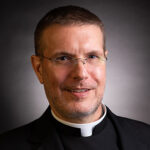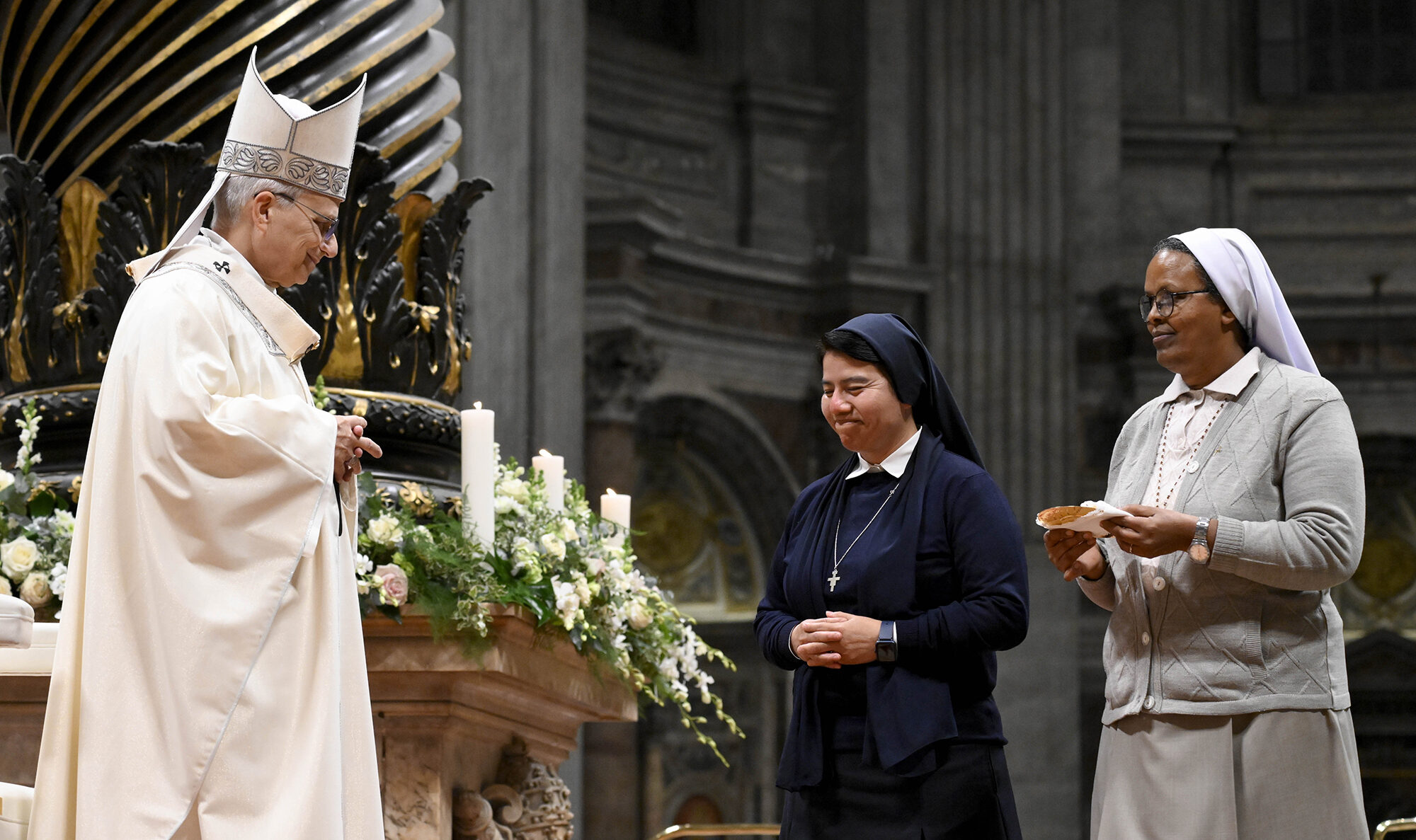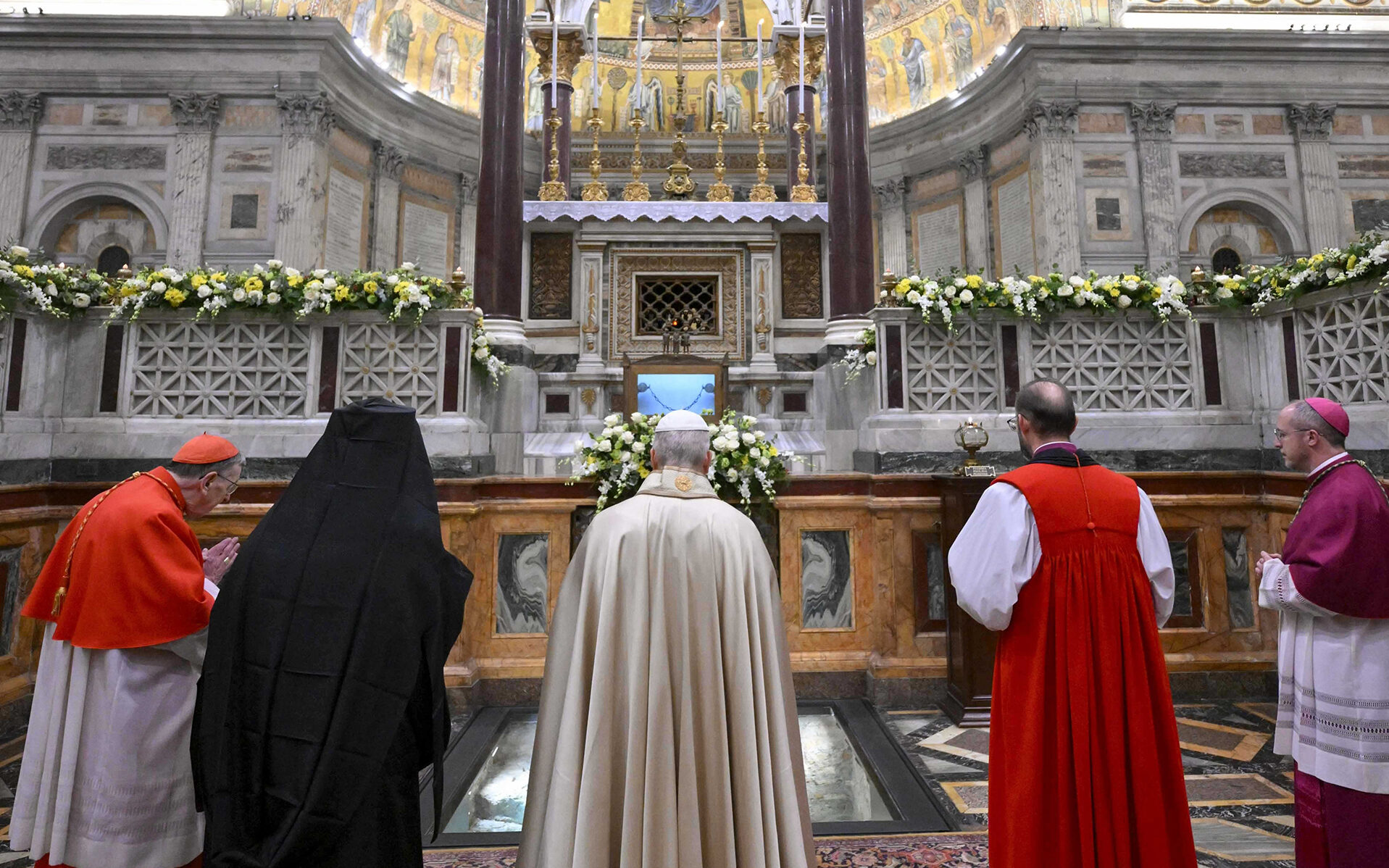DEAR FATHER | Deacons, priests and bishops have specific ministries for their ordained role
Given the shortage of priests, why can’t the Church permit permanent deacons to celebrate Mass or anoint the sick in emergency situations?

There are three levels of Holy Orders: deacon, priest and bishop. The Catechism of the Catholic Church explains the role of each: “Catholic doctrine…recognizes that there are two degrees of ministerial participation in the priesthood of Jesus Christ: the episcopacy and the presbyterate. The diaconate is intended to help and serve them…All three are conferred by the sacrament of Holy Orders” (1554). While a man may progress through all three levels, they are different ministerial roles and not interchangeable.
There is a reason for this. The “fullness” of the priesthood of Jesus Christ resides in the bishops, who are regarded as the successors to the apostles. Their role is to sanctify, teach and govern as shepherds of the portion of the Lord’s flock entrusted to them. Priests are ordained specifically to be the co-workers of the bishop of their diocese. While they share in the ministerial priesthood of Christ and are fully priests, their ministry is always in collaboration with the local bishop. A priest cannot preach or publicly celebrate the sacraments without receiving the faculties to do so from a bishop.
Each level of Holy Orders has a specific role. Priests are the ordinary ministers of baptism, Eucharist, penance and anointing of the sick. In order to confirm, except in the case of baptizing an adult, priests need the express permission of the bishop, who is the ordinary minister of confirmation. Because priests don’t possess the fullness of the episcopacy, it is impossible for a priest to ordain someone. If an attempt were made, the ordination would be invalid.
Deacons are ordained specifically to the order of diaconal service. They baptize, witness marriages, proclaim the Gospel at Mass and serve a special role in the Church’s charitable outreach. They are unable to celebrate Mass, hear confessions or anoint the sick, however, for those are priestly functions. As in the case of a priest attempting to ordain, if a deacon attempted to celebrate Mass or anoint the sick, the sacrament would be invalid. None of that is to minimize the role of the deacon; in fact, more attention is paid in the Acts of the Apostles to the deacons than to the priests.
While this may seem legalistic, it goes much deeper. All of these roles — deacon, priest and bishop — are gifts to the Church. Each has a specific ministry. For example, no matter how many bishops or priests are present at Mass, a deacon proclaims the Gospel, because that role is specific to his ministry. Only a priest can be pastor of a parish, because that is one of the ministries specific to the ministerial priesthood. Once we understand the gifts unique to each ordained role, we can better appreciate their importance in the faith community. The same goes for other liturgical roles, such as lectors, acolytes, musicians and hospitality ministers. We each have a part to play in the liturgical life of the Church, and it is only when we value and collaborate with one another that the various ministries achieve the goal for which they were instituted by Christ.
Father Scott Jones is the episcopal vicar for the Northern Vicariate of the Archdiocese of St. Louis.




